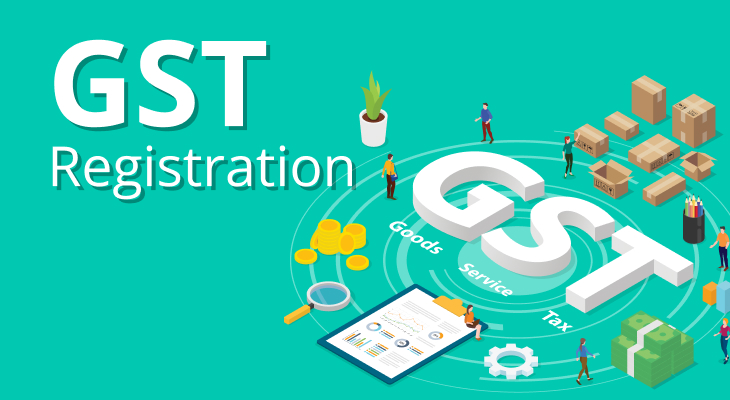Step-by-Step Process for Singapore GST Registration Explained
Step-by-Step Process for Singapore GST Registration Explained
Blog Article
Mastering GST Enrollment: Necessary Actions to Make Certain Governing Conformity and Organization Development
Browsing the realm of Item and Services Tax Obligation (GST) enrollment can be a pivotal action for businesses aiming to keep compliance and foster growth. The detailed process of signing up for GST demands an eager understanding of the essential steps entailed, from realizing the basic concepts of GST to carefully preparing the needed documents. Beyond just ticking off the governing checkboxes, mastering GST enrollment opens up a realm of possibilities for businesses to tactically utilize this tax obligation framework to move their development. Comprehending the subtleties of GST registration is not just a bureaucratic requirement yet a calculated action that can shape the trajectory of a service towards lasting success.
Comprehending GST Essentials
Comprehending the fundamentals of Goods and Services Tax (GST) is vital for companies to navigate the intricacies of tax compliance and economic monitoring effectively. GST is a value-added tax obligation levied on the supply of goods and services in India, aiming to produce a unified tax obligation system across the nation. Singapore GST Registration. Under GST, services need to sign up and acquire an one-of-a-kind GSTIN (Item and Services Tax Recognition Number) to be certified with the legislation

Readying Necessary Papers
To make sure compliance with GST enrollment demands, companies must collect and organize the required papers for the application procedure effectively. The crucial papers normally required for GST registration include proof of business registration or unification, Frying pan card of the identification, company and address proofs of marketers, pictures, financial institution statements, and evidence of address of the place of company.
Organizing these files in an organized manner can streamline the application procedure and show business's dedication to regulative compliance. Services need to maintain both physical and digital copies of these files for easy access and referral. By preparing the required records diligently, organizations can quicken their GST registration procedure and focus on their core operations with the guarantee of regulatory conformity.
Online Registration Process
Commence the GST enrollment process by navigating to the official online website marked for organization enrollment. When the account is set up, you can proceed with filling out the GST enrollment application type by getting in the necessary service details, including business turn over, kind, and address information.

Compliance and Coverage Responsibilities
Upon successful registration on the GSTN portal and completion of the necessary documents, organizations should adhere to rigid conformity and reporting obligations to make sure regulative adherence and operational openness. Conformity requirements under GST required timely and accurate declaring of numerous returns, such as GSTR-1 for outward supplies, GSTR-3B for regular monthly summary returns, and yearly returns like GSTR-9. Additionally, companies need to that site resolve their sales and acquisition data through GSTR-2A and GSTR-2B to case input tax obligation credit scores properly.
Keeping appropriate documents of billings, accounting records, and other appropriate data is important for GST conformity. Normal audits and analyses by tax obligation authorities require companies to have precise documents and reporting systems in place. Any disparities or non-compliance can lead to fines, penalties, or even suspension of GST registration.
To enhance compliance procedures, organizations can take advantage of GST conformity software application that automates return reconciliation, compliance, and declaring monitoring. Remaining upgraded with regulatory modifications and looking for expert suggestions when required can better improve conformity efforts and guarantee smooth operations within the GST framework.
Leveraging GST for Service Development
One essential benefit of GST is the input tax obligation credit mechanism, which allows companies to declare credits for tax obligations paid on inputs. Furthermore, GST advertises openness and responsibility in the tax obligation system, which can help companies develop trust with companions and consumers.
Furthermore, GST enrollment can also open up new markets for companies. Being GST-compliant can improve trustworthiness and make it simpler to expand procedures across state borders. This not only enhances market reach yet likewise promotes an one-upmanship in the industry. Additionally, by aligning with GST laws, businesses can adapt to changing market characteristics and remain in advance of the competitors. Fundamentally, leveraging GST for organization growth involves tactical preparation, effective conformity, and a forward-looking method to monetary administration.
Verdict
To conclude, mastering GST registration is important for making certain governing conformity and helping with business growth. By recognizing the fundamentals of GST, preparing essential papers, finishing the on the internet enrollment procedure, and satisfying compliance and reporting obligations, companies can take advantage of GST to their advantage. It is important for organizations to abide by the guidelines and utilize GST as a device for broadening their procedures and remaining affordable out there.
Browsing the realm of Product and Solutions Tax (GST) enrollment can be a critical action for businesses aiming to keep compliance and foster development. look at this web-site The essential papers typically needed for GST enrollment include proof of service registration or unification, PAN card of the address, identity and service evidence of marketers, pictures, bank declarations, and evidence of address of the place of service.Start the GST enrollment procedure by browsing to the main online website marked for service registration. When the account is set up, you can continue with loading out the GST enrollment application form by entering the essential service info, including business address, kind, and turnover information.
By recognizing the fundamentals of GST, preparing required files, completing the online enrollment procedure, and satisfying compliance and reporting commitments, companies can take advantage of GST to their advantage.
Report this page